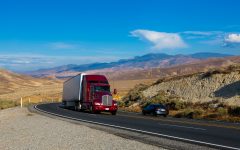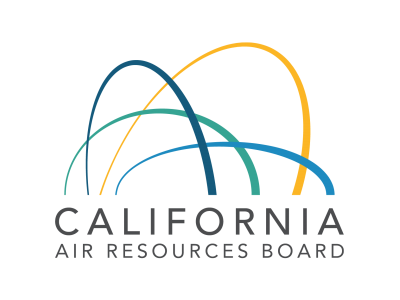
Car being loaded onto a flatbed tow truck. (Photo: public domain)
CARB Doesn’t Understand Towing
Tow you don’t – CARB only exempts government owned emergency vehicles
By Thomas Buckley, July 30, 2024 6:00 pm
At long last and no matter how unlikely, the question needs to be asked – Are the staff and officials at the California Air Resources Board in fact either from the future or another planet or maybe even both?
It may seem outlandish, but considering that CARB keeps mandating technology that does not yet exist and/or is not available on this planet it may be a fair question.
From trains to boats to tractor trailers, the agency has been mandating alleged improvements that simply do not exist, or are in very preliminary stages of development and therefore unavailable…for years.
And now it’s the tow trucks’ turn in the barrel.
In 2020, CARB created the Advanced Clean Truck (ACT) regulations. Those rules (along with modifications to other regulatory instruments) are now starting to take effect and already have devastated the state’s truck sales sector – for example, you have to sell one zero-emission vehicle (ZEV) for every nine regular diesel semis and the ZEVS do not exist and/or companies are simply not buying them because they do not have the range and capacity as a diesel truck (oh, and they’re about twice as expensive) so you can’t sell, or buy, diesel at all.
Part of the CARB rules exempts “emergency vehicles” from the regulations, but there is a problem: it only exempts government owned emergency vehicles.
It seems, in its typically monomaniacal blinkered fashion, CARB staff – despite taking years to craft the legislation and allegedly investigating all aspects of the transportation sector – did not come across the fact that most two trucks are PRIVATELY owned. In fact, almost all are.
Towing, in a nutshell, works like this – a company asks a city or county or what have you to be placed on its towing rotation schedule. If the company qualifies, it can start towing in the jurisdiction as part of the rota – company A gets the first tow, company B the second, company C gets the third, and then it’s back to company A.
But the trucks are privately owned by the towing companies and not the public, something CARB somehow missed. And while they are considered emergency response vehicles and play a critical role in handling traffic wrecks and such, they are not exempt from the new rules -and CARB said it has no plans to make them so.
So, as of January, except for inventory remaining from last year, a towing company cannot buy any additional – or any replacement – trucks.
That’s because they need to be ZEV and that technology does not exist.
A tow truck is not bought exactly how they are seen on the street. The chassis and the cab and engine are bought and then – separately – all of the towing equipment (flatbed, wrecker, or even the big giant towers that can literally semis off the side of a cliff) is added.
The problem is that there is no ZEV chassis that can handle the towing equipment.
The ZEV’s beds have the wrong wheelbase, the frames cannot handle the extra weight, the batteries get in the way (and add weight as well, limiting the towing capacity) and – possibly most importantly – they have a limited power, range and staying time.
“It’s like fitting a square peg into a round hole,” said Josh Lovelace of Miller Industries, a company that makes the towing equipment and spearheading the industry’s effort to somehow modify the law.
Changing the rules, CARB has said, will take a great deal of time as they will have to go through the entire public hearing process (not quite sure why…) to make the alteration. That process can take up to two years. That’s why a lobbying push has begun at the state house.
If the legislature does not get involved – as it did with the absurd boating regulations – and soon, a crucial part of the towing industry – the local small business that actually attach the tow equipment to the frame, etc. – will start laying off thousands of workers because there is literally no work to be had.
And in yet another irony of CARB’s existence, if tow trucks have to be replaced before (and if) the technology catches up to the regulations, they will have to be bought used from out-of-state and those trucks do not meet even the previous pollutions standards. In other words, the regulation will cost people jobs and actually make the air dirtier.
And less safe, because promptly clearing a freeway accident, for example, is a key part of ensuring motorist safety (oh, and it cuts down on air pollution because the cars do not spend as much time idling in traffic.)
Imagine for a moment a wreck on the freeway. The truck arrives, time is taken while the scene is investigated, a couple hours pass and now things can be cleared except – oops – the tow truck has to get recharged. Off it goes and ten hours later it returns to pick up the car.
“The CHP and fire departments consider towers emergency vehicles,” said Lovelace. “They count on us.”
Or imagine a very cold night in the mountains and a wreck is reported but is about 60 miles from the nearest tow truck. The truck may not be able to make that trip because of charging and/or weight issues.
Towers need to be ready “all day, every day,” said Brandon Neal of Truck Body Sales in Sacramento. His family company puts the tow equipment on the chassis. “We have to be prepared for anything.”
A significant risk that CARB has created is the possibility that California’s Freeway Service Patrol (FSP) program could be negatively impacted. Currently, state and local agencies have contracts with towing companies to essentially “patrol” the freeways. From helping people who run out of gas to cleaning up after major accidents, the FSP unquestionably speeds traffic recovery time.
If tow companies are unable to buy new trucks, the FSP will wither on the vine, putting lives in danger and making the already difficult California traffic problem even worse, said industry experts.
How CARB missed this crucial difference is not something the towing industry can quite get a handle on.
“They thought they had thought of all of the solutions, but they are so tied to electricity,” said Neal said.
It should also be noted that when making the regulations, CARB missed another key point related to other “working trucks,” like roll-offs and dump trucks. CARB did not take into account that some truck engines do more – a lot more – than just move the truck from point A to point B; they must be able to power the actual function of the truck itself.
Of course, it is possible that there are no working trucks on CARB’s home planet, but it would behoove them to be careful get the details right to try to fit in better with their home here on earth.
It would look less suspicious.
- Benefit Fraud Problems and Solutions - November 7, 2024
- A Little Exit Poll - November 5, 2024
- Tomorrow’s Headlines Today! - November 5, 2024





CARB needs to be sued on the basis of US Supreme Court striking down the Chevron ruling. Despite its sciencey-sounding name, most of its employees are neither scientists nor engineers – they are lawyers.
non elected officials should not be making policy
Amen…
These are advisory roles only and anything they say should not be considered as official as they are unelected and therefore we do not consent to be governed by unelected, unqualified advisors….
CARB exists as a government extortion front. How come my highly modified car runs with better emissions, as measured off OBD2, can’t be registered? please explain. it’s all the shop does, plug in and done.
Democrats will not stop until CA is completely destroyed.